Are 20 Percent of Americans Really Planning on Buying an Electric Car?

If we’re placing bets, this author’s money lands firmly on “no.” And I do it with the same level of conviction as betting on Boston when the Bruins play either Toronto or Ottawa. Choke artists, those guys.
So, where does this 20 percent figure come from, you ask? From adult Americans — 1,003 of them — who responded to a survey conducted by the American Automobile Association. AAA published a study Tuesday showing two in ten Americans are “likely” to buy an electric car as their next vehicle.
Does that sound right to you?
It certainly doesn’t to me. And yet, there it is.
“A new AAA survey shows that 20 percent or 50 million Americans will likely go electric for their next vehicle purchase, up from 15 percent in 2017,” the association wrote.
The survey questioned Americans aged 18 and over in early March via landline and cell phone, with responses weighted by six variables: age, race, gender, geographic region, education, and landline vs. cell phone-only households. We’re not calling into question AAA’s methodology. Rather, it’s the truthfulness of the responses that seem suspect.
Over the first four months of 2018, the market penetration of battery electric vehicles in the U.S. was 0.72 percent, according to HybridCars.com. That’s up from 0.5 percent in 2017, but it’s still less than 1 percent. When combined with sales of hybrid and plug-in hybrid vehicles, the market share of “electrified” vehicles in the U.S. rises to 3.21 percent on a year-to-date basis.
That’s still pretty small potatoes. And yet one-fifth of Americans plan to go electric the next time around? Seems mighty suspicious. Digging past the press release shows that respondents were allowed to include used vehicles on their wish list, which makes the 20 percent stat seem at least possible from a financial perspective. J.D. Power claims the average new-vehicle retail transaction price hit $32,544 in April — a figure that counts as “cheap” in the EV market.
Speaking to TTAC, Ellen Edmunds, public relations manager for AAA, mentioned something many of us know quite well — that electric vehicles often depreciate like it’s going out of style, thus presenting “a really good value” for the used vehicle shopper. Old Leafs can be had for a song, but don’t expect much driving range.
Taking into account the $7,500 federal tax credit, an EV would have to retail for about $40k to match the country-wide transaction average. To the industry’s credit, more EVs are appearing in this price range. Chevrolet’s Bolt undercuts it, as does the Nissan Leaf and Hyundai Ioniq, though Tesla’s long-awaited base model Model 3 ($35k) hasn’t yet reached production, and there’s a long line of reservation holders waiting to snap it up once it does.
A problem arises, however. The more electric and plug-in electrics an automaker sells, the closer it gets to exhausting its limited supply of tax credits. Once an automaker hits 200,000 eligible vehicles produced, the credit is cut in half, then halved again. The incentive quickly disappears, and cost is often king in this market. Other jurisdictions have seen EV sales dry up after government incentives bit the dust.
Tesla and General Motors stand to lose the full credit sometime this year, with Nissan getting the chop in 2019. Still, this implies all respondents to the AAA survey have done at least some of their homework, familiarizing themselves with what’s available on the market — as well as the models’ cost and limitations.
In many cases, it’s likely these are wishes, wants, and nothing else. Edmunds said the survey did not target vehicle owners, just those in the right age (etc.) categories, meaning some respondents are not currently vehicle owners, and might not be for years. One envisions the Millennial who dreams of landing that plum job, after which there’ll be an EV parked beneath his or her hip, downtown condo. That could indeed happen at some point, but reality has a way of intervening. Four years from now, owning a Dodge Journey in the suburbs might make more sense. Maybe EV range in their price category isn’t up to snuff once they do land that job, or the necessary recharging infrastructure isn’t in place where they live.
It’s likely more than a few respondents are banking on the availability of multiple charging points at their place of residence and work, not to mention along the highway. These would be fast charges, too. 68 percent of surveyed Americans felt a charging time of no more than 30 minutes is acceptable, with women (44 percent) outranking men among those who claim 15 minutes max is the longest they’d wait for a charge. Not even Tesla’s Supercharger allows these kind of recharging times.
Technology needs to keep up to keep some of these EV ownership dreams alive.
As these are just malleable intentions spread out over a broad time frame, maybe it’s just the fact that Tesla tweeted out the survey that has me annoyed. For what it’s worth, some 31 percent of respondents said they’re likely to buy a hybrid as their next vehicle. Just remember those earlier sales stats.
The survey also found that 80 percent of those who claim to be interested in an EV would buy one out of concern for the environment, whereas 67 percent said lower long-term costs was the main motivator. Some 35 percent said a faster commute was top of mind, with the EV allowing access to HOV lanes. Interestingly, of the tree-hugger group, 90 percent were women and 68 percent were men.
One finding that should bring encouragement to automakers is that fewer respondents seem terrified of range anxiety. Of the surveyed residents who said they were unlikely to purchase an EV, 58 percent said their biggest concern was running out of charge while driving. That’s down 10 percent from last year. The number of people listing “not enough places to charge” as their main gripe sank 6 percent from last year.
[Images: General Motors, Nissan]

More by Steph Willems
Latest Car Reviews
Read moreLatest Product Reviews
Read moreRecent Comments
- Theflyersfan Honda, Toyota, Nissan, Hyundai, and Kia still don't seem to have a problem moving sedans off of the lot. I also see more than a few new 3-series, C-classes and A4s as well showing the Germans can sell the expensive ones. Sales might be down compared to 10-15 years ago, but hundreds of thousands of sales in the US alone isn't anything to sneeze at. What we've had is the thinning of the herd. The crap sedans have exited stage left. And GM has let the Malibu sit and rot on the vine for so long that this was bound to happen. And it bears repeating - auto trends go in cycles. Many times the cars purchased by the next generation aren't the ones their parents and grandparents bought. Who's to say that in 10 years, CUVs are going to be seen at that generation's minivans and no one wants to touch them? The Japanese and Koreans will welcome those buyers back to their full lineups while GM, Ford, and whatever remains of what was Chrysler/Dodge will be back in front of Congress pleading poverty.
- Corey Lewis It's not competitive against others in the class, as my review discussed. https://www.thetruthaboutcars.com/cars/chevrolet/rental-review-the-2023-chevrolet-malibu-last-domestic-midsize-standing-44502760
- Turbo Is Black Magic My wife had one of these back in 06, did a ton of work to it… supercharger, full exhaust, full suspension.. it was a blast to drive even though it was still hilariously slow. Great for drive in nights, open the hatch fold the seats flat and just relax.Also this thing is a great example of how far we have come in crash safety even since just 2005… go look at these old crash tests now and I cringe at what a modern electric tank would do to this thing.
- MaintenanceCosts Whenever the topic of the xB comes up…Me: "The style is fun. The combination of the box shape and the aggressive detailing is very JDM."Wife: "Those are ghetto."Me: "They're smaller than a Corolla outside and have the space of a RAV4 inside."Wife: "Those are ghetto."Me: "They're kind of fun to drive with a stick."Wife: "Those are ghetto."It's one of a few cars (including its fellow box, the Ford Flex) on which we will just never see eye to eye.
- Oberkanone The alternative is a more expensive SUV. Yes, it will be missed.



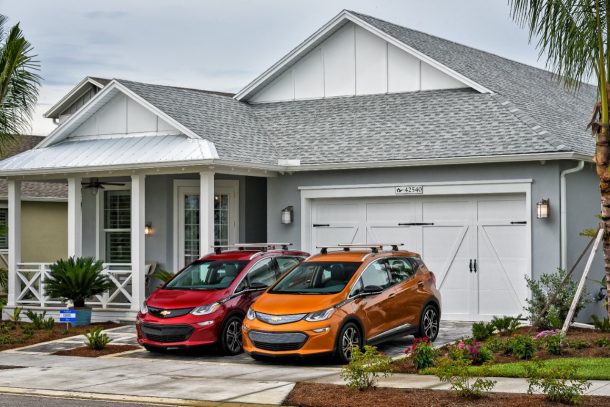


















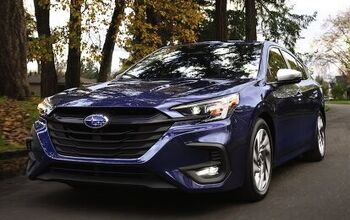

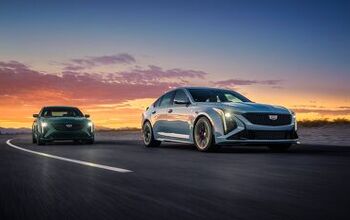
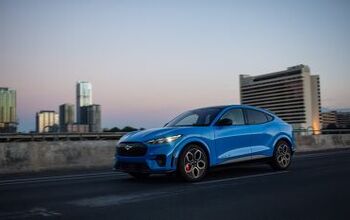



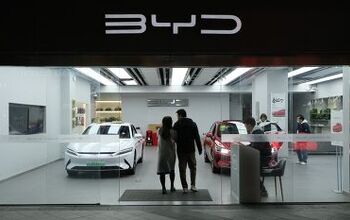





Comments
Join the conversation
If the price is right, why not? We would have considered a Pacifica plug-in but they were impossible to find when we we're looking. I've considered buying an old Leaf as a third car, but it doesn't really make sense right now.
I can answer the headline question in one word. "NO".